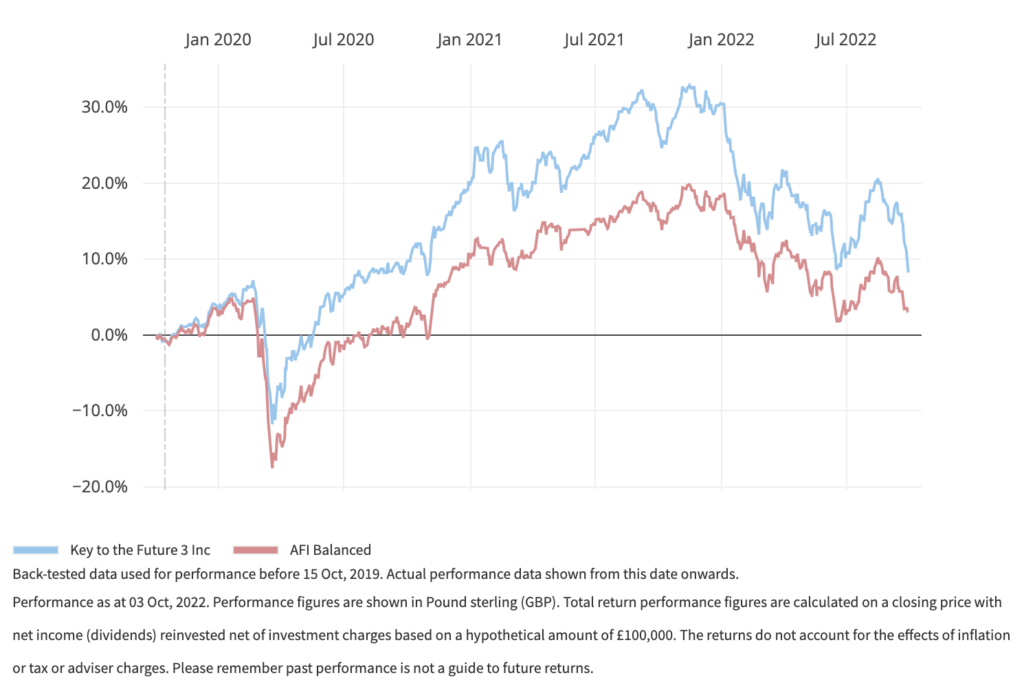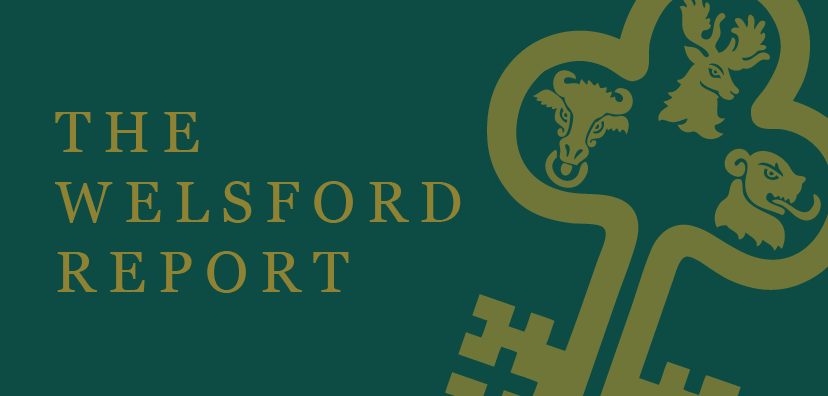Events of the last 10 days have accelerated interest rate rises, done little or nothing to address inflation or the cost of living crisis and inflicted further pain on cautious investors holding bonds and infrastructure investment funds. Equity investors have not been left unscathed but ultimately the shares of good quality companies will recover, particularly where we are likely to be experiencing inflationary pressures for the foreseeable future. Importantly, we are investing globally and not just in the UK. However, we must not underestimate the damage done by Mr Kwateng and Mrs Truss, acting in this way and completely at odds with the Bank of England. I hope to be able to explain what happened and, for our investors, what we are doing about it.
Literally no one, except Liz Truss, could have predicted what the new Chancellor of the Exchequer was planning for his Fiscal Event of the 23rd September. It wasn’t discussed or agreed by Cabinet and there was no warning. The effect has been devastating.
Although the 45% tax cut has now been removed from the package of measures announced in the Kwarteng mini-budget statement, the damage to bond markets has been done with £65 billion having been spent in buying back government bonds to prevent the collapse of UK pension funds. The political damage to both the Prime Minister and the Chancellor is difficult to assess and only time will tell if their reputations can be saved. However the economic damage done to Sterling and to the credibility of the UK as a serious economic power should not be underestimated. Trust takes years to build and in the case of nations it can take centuries. It can be destroyed in moments. Whether this is such a moment remains to be seen.
Increasing interest rates is designed to tackle demand driven inflation. In the UK, inflation has not been predominantly demand driven. It has been caused by rises in the cost of food and energy, driven by external supply shortages. These have come about from the cutting off of gas supplies to the West by Russia and grain and rice shortages resulting from extreme weather events in China, India and the Far East, as well as the war in Ukraine. In the UK, unlike most other developed countries, increased demand for other less essential goods and services from consumers with more money to spend has not been at the root of inflation. Rising UK interest rates can only result in upward pressure on wages and downward pressure on economic growth.
A price worth paying
However, this was clearly considered a price worth paying by the Bank of England, almost certainly because of the effect that doing nothing would have on the UK’s balance of payments and the value of Sterling, both of which are considerations for the central bank, regardless of any short-term misery caused by raising interest rates for the average citizen. The Bank would be thinking further ahead.
During this time the Government was not thinking further ahead than the next General Election. It was managing the UK’s response to events in Ukraine, a crisis in the Conservative Party, the eventual departure of Boris Johnson and the appointment of his successor and her new cabinet. All this against a backdrop of one of the biggest waves of industrial action by organised labour in recent history, reacting to the cost-of-living crisis, caused by inflation and made worse by rising interest rates. Then, just as the new leadership are taking office, the country comes to a complete standstill with the death of Her Majesty Queen Elizabeth the Second. Before they know it, the Party Conference season is upon them.
Then: enter Mr Kwarteng! It seems to me to be no coincidence that he decided to use the Fiscal Event to announce so many extremely important strategic decisions immediately prior to the party conferences – Labour’s kicked off just 2 days later on the 25th September and the Conservative conference begins today (2nd October). Announcing a ‘big’ tax cut, funded entirely by borrowing, on the 23rd September, may have seemed like a good idea to those lacking any understanding of the wider effect it would have on the markets. Ironically it nonetheless had the desired effect. News from the Labour conference seems to have been almost completely overshadowed by the reporting of the ensuing market turmoil.
It can’t be true, can it?

I will turn to the markets and what actually happened and why, shortly. First let’s explore some of the rather more salacious and disturbing aspects of the events of the last week from the perspective of someone who was in the City all week and talking to numerous people in finance and the financial media. Here are some other facts to consider.
It was reported this week in the Times: ‘Crispin Odey, a hedge fund manager who has profited from the fall in the value of the pound and government debt, met Kwarteng at his home in London on July 17, when there were still six candidates in the running for the Tory leadership. Truss, the candidate who Kwarteng backed, made it to the final two on July 20.’
Odey has been widely reported as referring to the falls in the value of UK Government Gilts, from which his hedge fund has made millions, as ‘the gift that keeps on giving.’ Odey uses ‘shorting’ to bet on and profit from the falls. He told the FT ‘there’s a mad idea that one’s behind every twist and turn,’ said Odey. ‘All I can do is catch the wind now and again.’
Odey has profited from costly political decisions in the past, such as a no deal Brexit, which he supported by donating significant amounts to the various groups campaigning for that outcome. The FT reported him as saying that ‘suggestions he donated to the campaign to profit from a potential chaotic Brexit outcome were “crap.”’ However, his £10 billion hedge fund jumped 15% on the day after the vote and we need to bear in mind that hedge funds don’t donate large amounts to political causes for no reason. We are left to draw our own conclusions.
No excuses for predictable consequences
Mr Kwarteng, who has a PhD in the History of Economics and has acted as a consultant to other financial institutions besides his former employers at Odey Asset Management should reasonably be expected to understand what would happen as a result of his announcement.
His boss Liz Truss has dismissed criticism, saying that the Bank of England is responsible for determining interest rates and Government is responsible for determining tax policy. This is disingenuous, particularly given Truss’s qualifications, she read PPE (Philosophy, Politics and Economics) at Merton Oxford. She qualified as a chartered management accountant with Shell and became economic director of Cable & Wireless. She has authored numerous reports on economic policy. She will have a good understanding regarding the relationship between the Government and the Bank and the vital importance of them working cooperatively. She should also have had no doubt about the effect of the announcement. This may explain why so few others were consulted and why the OBR (Office for Budget Responsibility) were not given an opportunity to report on the likely costs and consequences.
The fact is that the Kwarteng announcement caused the biggest run on UK Government Bonds ever. This meant that the Bank of England had no choice but to step in and begin the largest concentrated purchase of long dated gilts in history. The alternative would have been to let the UK’s pension annuity and defined benefit pension fund sector collapse.
Pension funds and annuities, when paying guaranteed income, are required by law to match their investment assets with their liabilities. The sovereign debt of normally stable governments such as the UK are a mainstay of such a strategy and the pension income managers are reliant on the gilt edged nature and stable income of these bonds to create predictable and safe income streams with which to provide pension income to retired folk. Because this takes a vast amount of capital, this part of the pension industry plays an important part in financing government activity, lending it money by investing in government bonds (AKA Gilts). In part, this is why important changes to fiscal policy (taxes and expenditure plans), normally announced in budgets, subject to democratic agreement in Parliament, are discussed, scrutinised and tested first by the OBR.
This is supposed to help avoid Government fiscal policy coming into stark conflict with the Bank of England who are ‘tasked with setting interest rates, issuing banknotes, processing electronic payments and keeping an eye on possible risks in the financial system.’ What they really need to avoid is having to deal with risks to the financial system created by the government of the day. That is what makes recent events so extraordinary.
What are we doing about it?
We held a Key to the Future investment committee meeting last Thursday (29th September), with our discretionary investment manager Peregrin & Black. Predictably, the main agenda item was the fallout from the Fiscal Event and what should be done to protect the model portfolio from further declines in value. Today’s U-turn on the 45% tax rate cut doesn’t really change much in terms of what we discussed and agreed. The fact is that the 45% tax rate cut was only a small part of the overall package of unfunded expenditure announced in the Fiscal Event. The cost of bond buybacks and the as yet uncharted effects of the measures will still, in our opinion, lead to further interest rate rises. Whether these are directly imposed by the Bank of England’s Monetary Policy Committee or as a result of the rise in the yield of bonds is moot. The fact is that the cost of borrowing is extremely likely to continue rising.
Most clients will know, from previous reports, that as official interest rates rise, the capital value of bonds will fall and visa versa. Knowing this means that we can be relatively certain, in the current conditions, that there is worse to come for the corporate bond market as it competes with rising cash interest rates and rising government bond yields.
The extent to which predicted rises in interest rates are already fully priced-in is, in our opinion, probably not as much as the fund managers would like us to think. It would be nice to believe them. However, whilst there may be some pricing-in, it is more likely that ‘yet to happen’ interest rate rises cannot be fully priced in. This would only really be possible if the full extent of future interest rate rises was known, and it is not. We think bond values still have further to fall, particularly long duration bonds. Consequently, Peregrin & Black, have taken steps to sell all the long duration bonds being held by our Key to the Future model portfolios. This is because these are the most sensitive to changes in interest rates.
We already took action to reduce the proportion of these bonds in response to rising rates earlier in the year but the events of last week mean more radical action is required.
We have retained our investment in short duration bond funds because they have a better chance to recover, as more of the bonds they hold will mature in the near term and can be reinvested in new higher yielding bond issues that better reflect the new higher interest rate environment. Equities (shares) including those in infrastructure that we have used to replace the longer duration bonds sold out of the portfolio previously will be retained. As a result of our investment committee discussions, Peregrin & Black, have taken the short-term decision to hold on to the cash generated by the current sale of long duration bonds. This should present an opportunity in the near term to reinvest productively for the long term, either in alternatives to bonds or in short duration bonds more suited to a rising interest rate environment.
Trust in good quality long term investment strategies
Ultimately, it is really important to remember that no matter how extraordinary the events of 2022 have been, things like this have happened before and we have recovered. Remember 2001 and 2007. Both brought massive global shocks to bond and shares markets and seemed impossible to fathom. Now they are history, well understood, and serve only to help us judge current events. Governments come and go and none of us can predict the future. We can only trust in the ability of a good quality moderate risk portfolio, as exemplified by the Adviser Fund Index (against which our own Key to the Future Number 3 model portfolio is benchmarked – see the second chart below) to produce long term results that are historically better than average returns from UK property, 90 day cash savings, or UK retail price inflation (RPI):

For a logarithmic scale presentation for the above chart, which may present a fairer view of this long term data, then please click here.

Warnings: Please note the value of investments can fall as well as rise and you capital is at risk. Returns are not guaranteed and past performance is not a reliable guide to future returns. This report is not intended as advice, offer or a personal recommendation. For advice relating to your specific circumstances please contact your regulated and authorised financial adviser. You should not take any action as a result of reading this report.
If you have any questions please contact the author Chris Welsford.
